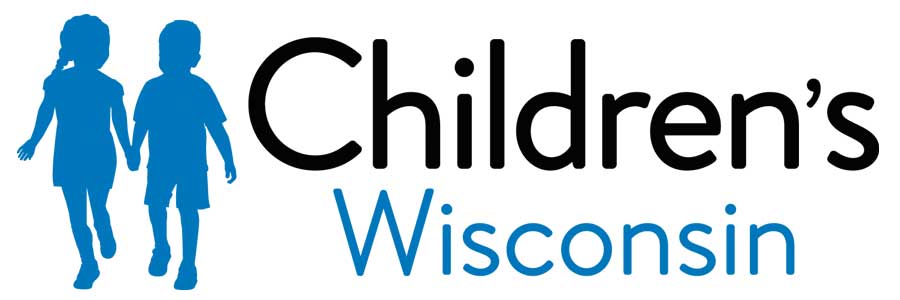FPIES Food Protein Induced Enterocolitis Syndrome (1818)
Key points below
(Food Protein Induced Enterocolitis Syndrome)
What is FPIES?
FPIES is a kind of food allergy that affects the gut. The body reacts to a protein found in some foods. These are called trigger foods. The trigger food causes swelling and pain in the small and large intestines (enterocolitis).
FPIES usually happens in babies and young children. Most children outgrow FPIES.
We are not sure what causes FPIES. It is more common in children that have other allergic conditions like eczema.
There is no test to diagnose FPIES. Your doctor will ask you questions about foods and symptoms to help make the diagnosis. Sometimes, tests may be done to make sure there are no other problems.
What are the symptoms FPIES?
- The symptoms of FPIES may include:
- Throwing up
- Watery poop
- Blood in the poop
- Sunken eyes, no tears when crying, or a dry mouth (signs of dehydration)
What are the types of FPIES?
Acute: symptoms happen soon after eating a food. The symptoms can be severe and your child may need to go to the Emergency Room (ER) right away.
Chronic: symptoms happen with daily intake of food and take longer to resolve. They may happen a long time after eating food.
How is FPIES treated?
Acute FPIES reaction may need to be treated right away in the ER. Your child may be given IV fluids and medicines to help stop their symptoms. Your child will need to stop eating the foods that caused the reaction (trigger food).
For chronic FPIES, the only treatment is to not eat the trigger food. To find the trigger food, sometimes allergy testing is done. But more often, it is done by taking foods out of the diet to see if symptoms get better. Sometimes it can be hard to find the trigger foods, and it may take weeks. Some children with FPIES react to more than one trigger food.
Take your child to the ER if they:
- Throw up (vomit) more than 3 times in 2 hours.
- Seem more sleepy than usual.
- Have sunken eyes, no tears when crying, or a dry mouth.
- Have no wet diaper or pee for 8 to 10 hours.
- Are lightheaded, dizzy, have clammy skin, or blurry vision. You may see this in older children.
What are common Trigger Foods?
The table below shows some foods that are known to be trigger foods. Your doctor will work with you to help figure out which foods it may be.
| Food group | Lower risk | Medium risk | Higher risk |
|---|---|---|---|
| Vegetables | Broccoli Cauliflower Parsnip Pumpkin Turnip |
Carrot Green beans Squash White potato |
Peas Sweet potato |
| Fruits | Avocado Blueberries Peach Plum Strawberries Watermelon |
Apple Orange Pear |
Banana |
| Protein | Lamb Tree nuts |
Beef Peanuts |
Eggs |
| Grains | Millet Quinoa |
Barley Corn Grits Wheat |
Oats Rice |
| Dairy & dairy substitutes | Milk Soy |
Can I breastfeed if my child has FPIES?
Most often yes! Sometimes the mother cannot eat the trigger foods. This should be discussed with your provider. When a mother starts to take foods out of her diet, it is important that she meets her own nutritional needs. Some children are prescribed a special formula. This is a formula in which the milk protein, carbohydrates, and fats are broken down, so it does not cause a FPIES reaction.
Will FPIES impact my child’s nutrition?
It is important to meet your child’s nutrient needs. This may be hard if you take out the trigger foods. It may also be hard to find food textures that will help your child learn to eat table foods. Ask to talk to a dietitian about safe foods for your child. It is important to have your child’s growth checked at doctor’s visits.
Will my child see other providers?
Your child may see a team of health care providers.
Doctor. This will be a Gastroenterologist, Allergist, or both. They will assess the symptoms, make the diagnosis, and help you figure out which foods to avoid.
Dietitian. This person helps you figure out how to avoid the trigger food. They also suggest safe foods and drinks to make sure your child meets their nutritional needs.
Nurse. The nurse helps you learn about FPIES and answers questions between clinic visits.
Will my child outgrow FPIES?
Most children outgrow FPIES by grade school. It is important to see your doctor every year to determine if your child has outgrown their FPIES.
- Your doctor will let you know when to start giving the food at home and watch the response.
- Some patients may need a food challenge. In a food challenge, the patient eats the trigger food in the allergist’s office. The allergist watches to see if your child has a reaction.
Where can I get more information?
www.fpies.org provides education, support, and advocacy for individuals with Food Protein-Induced Enterocolitis Syndrome (FPIES) and their families.
aaaai.org American Academy of asthma allergy and immunology
